70 years of the UDHR: Human rights defenders tell us about their fights
11 December 2018
Today, December 10, 2018, the UDHR celebrates its seventieth anniversary. The opportunity for ECPM to give voice to those around the world (Iran, Algeria, Indonesia, Tunisia, Cameroon, Malaysia, the Democratic Republic of Congo and Lebanon), fighting daily to defend human rights. A big thank you to our eight partners, with singular and evocative journeys, for taking the time to answer our questions.
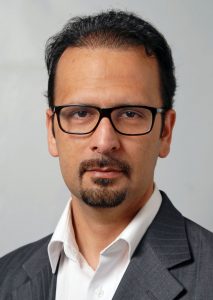
IRAN – Mahmood Amiry-Moghaddam, Director of Iran Human Rights (IHR)
1. Would you tell us how started your militant career?
I was born in Kerman, Iran in 1971 and moved to Norway as refugee in 1985. I am a medical doctor and currently working as a professor at the medical faculty, and leader the laboratory of molecular neuroscience at the University of Oslo. I am also the founder and Director of the NGO Iran Human Rights. But the first action against the death penalty which I initiated was in 2004, and it became the start of what later became Iran Human Rights. It was to save a young girl, Leyla Mafi, who was sentenced to death for immoral acts when she was 15 or 16. We managed to build up a big campaign with the help of Amnesty International in Norway. Leyla’s case was on the top news, and even the Norwegian Prime Minister wrote a personal letter to the Iranian President Mohammad Khatami. Finally, as a result of this campaign, Leyla’s death sentence was removed. My first contact with ECPM was through one of the people affiliated with ECPM (Sandrine Ageorges-Skinner), who offered to translate Iran Human Rights new reports, in French; we then started a French page on our website with her help. Through this contact we got to know the large family of the abolitionists in the World Coalition against the Death Penalty and IHR became a member in 2010. IHR’s first joint action was publication of the annual report on the death penalty in Iran 2012. Since then we have collaborated in the publication and launch of the report every year.2. Why is it important for you to fight against the death penalty?
I was introduced to the concept of the death penalty when I was 7 years old, three days after the start of the Islamic revolution in February 1979. For the first time, on the cover of the main newspapers, I saw pictures of people who had been executed by the revolutionary regime after short trials. In the following years, the mass executions of the political opponents of the new regime had made the death penalty a common part of the people’s daily life. In the summer of 1981, there was news of mass executions almost every day. My cousin was executed in August 1981 when he was 18. His crime was “affiliation with an opposition group”. The same summer, I also saw two people who had been publically hanged under a bridge near where we lived. Those pictures have stayed in my mind since then. I think the death penalty is probably the most serious violation of human rights. The fight against the death penalty also includes fighting for the many other aspects of the human rights, such as due process and rule of law; and the rights of minorities, children, women and all the vulnerable and marginalized groups in the society. Moreover, we see that many dictators use the death penalty as their most important instrument to spread fear in the society and, through this fear, to continue their rule. Finally, acknowledgement of the human dignity is not possible as long as there is death penalty in a society. In a few words: death penalty is the mother of all human rights violations; sustainable respect for the human rights will not be achieved unless the death penalty is abolished. I have experienced that all our actions help. We are not powerless and what we do can save lives. When you know that, then it is impossible to be silent and do nothing.3. What are the advancements and the difficulties that you find on your way while defending human rights?
Saving each individual from the death penalty is a huge success and our work, and the work of other abolitionist groups has saved many lives. But I would like to mention two of our most important achievements: during the last 10 years we have managed to make a shift in the narrative and the way the Iranian society looks at the death penalty, and this has contributed significantly in the change in the law for drug crimes which has restricted the death penalty for drug offenses. As a result, the number of drug-related executions has decreased from several hundred yearly executions to less than 10 in 2018. The biggest difficulty is to maintain the international focus on the issue of the death penalty. Unfortunately, the death penalty is still not among the top priorities of the international community, and the number of the executions is still very high. Each execution feels like a huge blow in the face.4. Which evolution of the death penalty situation can you relate in your country?
The abolitionist movement is growing. When we started our work against the death penalty there were no organized abolitionist groups inside Iran; now there are many, and I think the situation is similar for many other countries. Although we still have a long and tough way ahead of us, I believe we will one day see total abolition of the death penalty.5. One last word for the abolitionnist community ?
The struggle against the death penalty is the most important struggle of our generation. Join us to abolish the death penalty and restore the human dignity.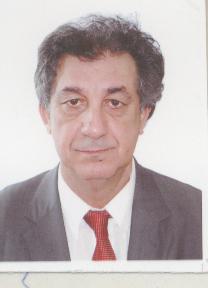
ALGERIA –Nourredine Benissad, President of the Algerian League for the Defense of Human Rights (LADDH)
1. Would you tell us how started your militant career?
I was born in Algeria in 1958, and I am a lawyer. I co-created the lawyers’ collective against the death penalty, when my country was in a state of emergency during the Algerian Civil War. It was my first militant action against the death penalty. My first activity with ECPM goes back to 2013, when I participated in the Madrid World Congress against the Death Penalty.2. Why is it important for you to fight against the death penalty?
It is important for me to work against the death penalty, because it violates a fundamental right of the human person, the right to life. My motivation comes from reading books on this issue, such as those from Cesare Beccaria, Albert Camus and Robert Badinter. I was in Paris in 1981 when Robert Badinter, then Minister of Justice, presented to the French National Assembly the bill on the abolition of the death penalty. This brilliant speech left its mark on me; for it was the moment I decided to work towards the abolition in my country.3. What are the advancements and the difficulties that you find on your way while defending human rights?
We made a small progress in establishing abolition of the death penalty in the principles of the Algerian League for Defence of Human Rights’ charter, as soon as 1985; and we led campaigns and advocacy actions on the national level for the abolition. I think that we contributed to the Algerian authorities’ decision to put in place a moratorium on executions from 1993 on, which has been reaffirmed every two years since 2007 through the vote in favour of the UN resolution on a moratorium on the use of the death penalty. Conversely, the fact that the Algerian authorities have not formally abolished the death penalty in the legislation, for lack of agreement and resources, has left an impression of unfinished work.4. Which evolution of the death penalty situation can you relate in your country?
The evolution of the situation of the death penalty in my country is related to the evolution of the Algerian society, especially regarding the democratization level. De facto abolition exists and publically speaking about the death penalty no longer is a taboo. In the future, should the political will for more democratic openness become a reality by authorizing the society to work freely, I think that a lot of civil society actors – human rights organisations, bar associations, academics, media – can carry out pedagogical work on the Algerian society.5. One last word for the abolitionnist community ?
No one should be able to take a human being’s life, not even the justice system.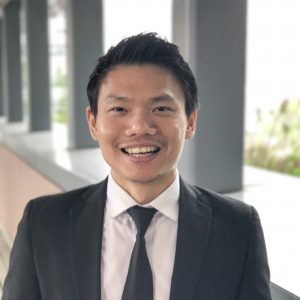
INDONESIA – Ricky Gunawan, Director of the Community Legal Aid Institute (LBHM)
1. Would you tell us how started your militant career?
I was born in Indonesia, in 1984. My profession is human rights lawyer, and I am the director of the Community Legal Aid Institute (LBHM) – a NGO that provides free legal services for the poor and victims of human rights abuses, including people facing the death penalty or executions. My first militant action against the death penalty was dated back in 2008 when I first visited our very first death penalty client, Humphrey Jefferson (Jeff). Sadly, we lost Jeff when he was unlawfully executed in July 2016, despite a pending clemency decision and with less than 72 hours’ notice of execution.2. Why is it important for you to fight against the death penalty?
The work of abolition of the death penalty is important for me because I strongly believe in the inherent dignity of all human beings, in which it justifies the right to life that must be protected by the state; and that the death penalty is a direct attack to our human dignity. Jeff, LBHM’s first client and a death row prisoner, gave me that source of motivation to work against this cruel injustice. Jeff was tortured and had to confess to a crime he had not committed; his court decision was racially biased. And so, in one single case, you could see that there were multiple of injustices that led to the death sentence. It drove me to work deeper not just to assist people facing the death penalty or executions, but also to actively improve our justice system so that it really serves justice – instead of being a soil of injustice.3. What are the advancements and the difficulties that you find on your way while defending human rights?
My biggest achievement in this journey is that I get to work with a group of tireless and dedicated lawyers and campaigners at LBHM. Their commitment to saving lives and restoring hopes is unparalleled. We work together to raise the profiles of those who have been sentenced to death and executed to the public, and unfold the sufferings they have endured. Through our capital defence work, we also managed to mainstream the intersection of drug policy work and human rights. At the same time, through my work with these amazing human rights advocates, I got to be inspired by the resilience and human perseverance of countless death row prisoners whom I have met in the past ten years or so. They remain the catalyst for me and my colleagues to end this ultimate and irrational punishment. The biggest difficulty I had so far is when our client Rodrigo Gularte – a Brazilian national who had schizophrenia and bipolar disorder – was executed in April 2015. I was extremely convinced, until the very last minute, that we could save him from the firing squad, since I believed that a civilised nation would not execute people with mental illness. However, when the Indonesian government decided to carry out Rodrigo’s execution, my heart was broken. Upon his execution, together with few of my colleagues, we went to Jakarta to bring his remains for the requiem mass. I did not cry and I did not feel anything during our journey to Jakarta. It was when I came back to my office to refresh and share the story with my team that I broke down. “I failed.” I said that many times to myself. It was very hard for me to cope with this chapter of my life – both at a personal and a professional level. At the moment, we are pursuing justice to remedy the execution of Rodrigo. It has been a tough and twisting legal battle. However, we owe Rodrigo so much that we cannot stop our fight now.4. Which evolution of the death penalty situation can you relate in your country?
There was a time when I thought that Indonesia would never abolish the death penalty. However, just looking back at the world history of the abolition, it is a global trend. And for me, it is just a matter of time until Indonesia ends this cruel punishment. It may take some time, but I am hopeful that we will reach that stage. I think we have now managed to expose the brutality of capital punishment and getting more people to be in the abolition movement. The death penalty is a political commodity in Indonesia – just like other human rights issues and just like in many places too. Politicians have used this as a tool to show to the public that they are tough on crime; but we are slowly breaking that. And I see a future free of the death penalty in Indonesia, and a country that will truly respect the right to life and protect human dignity of all.5. One last word for the abolitionnist community ?
Together, let’s end the death penalty, because every human matters.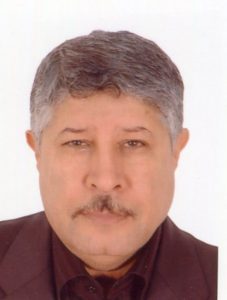
TUNISIA – Chokri Latif, President of the Tunisian Coalition Against the Death Penalty (CTCPM)
1. Would you tell us how started your militant career?
I was born in 1958 in Nabeul, Tunisia. I am a writer and a researcher in political philosophy. In April 1980, the Tunisian government announced that 13 political opponents had been sentenced to death. As a leading member of the student movement at the time, I organised and led student protests and a general student strike, before and after the executions. This first militant action against the death penalty was strengthened when I joined the Tunisian League for the Defence of Human Rights (LTDH) later in the 1980’s and when I co-founded the Organisation against Torture in Tunisia (OCTT) in 2001. My first action with ECPM was the participation in the regional conference in Tunis in 2014.2. Why is it important for you to fight against the death penalty?
I agree with the humanist philosophical values that defend the right to life and consider it to be the most important human right. On this, the writings of philosophers like Voltaire and Diderot, Sartre and Camus, as well as Marx and Nietzsche contributed greatly to deepen my own approach. Some great writers like Hugo and Dostoyevsky, as well as great artists like Ferrat, Ferré and Brassens also contributed. My motivation is based on historical events: the executions of anti-colonialist militants in the first half of the 20th century, or, more recently, the execution of the 13 political opponents in 1980. But, above all, a major event was particularly difficult and will remain etched into my memory: the death sentencing of the Sudanese thinker Mahmoud Mohamed Taha, executed in Sudan in 1985 for apostasy, at the instigation of the Muslim Brotherhood.3. What are the advancements and the difficulties that you find on your way while defending human rights?
The biggest achievement I experienced, that brought me joy and proudness, was the Tunisian government’s decision to reopen the case of Maher Manai, wrongfully sentenced to death since 2004. The retrial, supported by the Tunisian Coalition against the Death Penalty (CTCPM) and ECPM, was denied several times before being granted in July 2017; it set an important precedent in Tunisia. In Tunisia, there has not been an epistemological break yet, when it comes to ideas, knowledge, the view of the world and of oneself, and the societal and political relationships. The dominant system of thought has changed little for centuries. Its structures, its components and its conservative references have been reinforced and strengthened by the rise of the islamist political movement, which relies on the conflation of politics and religion to manipulate the public, to counter the abolitionist movement and to lead campaigns against its demands. It is the biggest challenge the abolitionist movement, as much as the democratic movement in general, has to face, in Tunisia and in the entire Arab world. This challenge demands a long-term work and effort to vulgarise, educate, and raise awareness for a greater public mobilisation.4. Which evolution of the death penalty situation can you relate in your country?
Despite cultural and political challenges, the abolitionist movement is making progress. The CTCPM, founded in 2007, was finally legally recognized by the Tunisian authorities in 2012. After years of withdrawal and inertia, things have changed. Public actions and visibility are increasing; connections between different components of civil society and of the democratic movement have been strengthened; relationships with the youth and student movements have been established. Furthermore, the situation of prisoners sentenced to death has evolved: they are no longer isolated in death rows, chained up and cut from the world. Tunisia regularly votes in favour of the UN resolution for a moratorium on the use of the death penalty. Thanks to these notable achievements, I continue to see the future of the Tunisian abolitionist movement in a very optimist way. But vigilance is always needed, as long as the moratorium has not been institutionalised and the Second Optional Protocol to the International Covenant on Civil and Political Rights has not been ratified by Tunisia.5. One last word for the abolitionnist community ?
The work against the death penalty is a commitment to human dignity.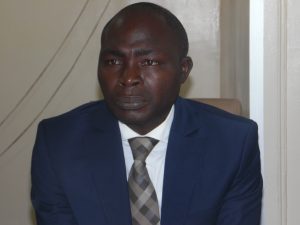
CAMEROON – Nestor Toko, coordinator of Droits et Paix and President of RACOPEM
1. Would you tell us how started your militant career?
I was born in 1968 in Baboné, in the West Region of Cameroon. I am a lawyer. I had observed that courts in Cameroon continued to hand down death sentences, in spite of the protection of the right to life and against torture and other cruel, inhuman and degrading treatment enshrined in the Constitution. So I organised a conference in 2009, to raise awareness on the necessity to abolish the death penalty in Cameroon. In 2012, I participated in a regional conference held by ECPM in Kinshasa, DRC, that led to the creation of the Central and Eastern African Coalition Against the Death Penalty, with abolitionists from ten countries (Burundi, Cameroon, Kenya, Uganda, Central African Republic, Congo, DRC, Rwanda, Tanzania and Chad). On 31 March 2012, this Coalition called upon states in the region that had not abolished capital punishment to do it and to support the UN resolution on a moratorium on the use of the death penalty.2. Why is it important for you to fight against the death penalty?
Death penalty is a flagrant violation of the right to life. Human life is, in my perspective, the supreme value that needs to be protected in a society. Death penalty is irreversible and takes away the possibility to redeem oneself. Yet I have seen, in my career, people that had initially been sentenced to death, be found innocent. There is a recent case that defines and justifies my commitment to end the death penalty in my country: two nurses, about to become civil servants, were brought on 28 August 2015 to the Maroua military court for terrorist crimes – punishable by death in Cameroon. The public prosecution accused them of having provided medical care to members of the terrorist group Boko Haram. At the hearing, the prosecution did not present any witness, any evidence, or any indication on the source of the accusation. Both defendants were sentenced to death. They filed an appeal, and the Court of Appeal of the Extreme-North acquitted them, on the grounds that the first judge had wrongfully sentenced them, without evidence, on the basis of a rumour.3. What are the advancements and the difficulties that you find on your way while defending human rights?
At the very beginning, we were the only ones to publicly work against the death penalty. Now we managed to mobilise abolitionist lawyers from the ten regions in Cameroon, in the Network of Cameroonian Lawyers Against the Death Penalty (RACOPEM), founded in 2015. With our initiative, the Bar Association of Cameroon called in June 2016 for the abolition of the death penalty, when it had previously refrained on adopting an official stance on the issue; it has also held a moot court competition on the subject. Other civil society organisations, such as Justice impartiale, have included the abolition of the death penalty in their priorities. Several parliamentarians did not hesitate to push abolition forward when the new criminal code was being debated in Parliament in 2016. Of course, not everything was easy; I can remember the time when the administrative authorities did not allow us to hold public meetings, pretexting that it was subversive to talk about the issue of the abolition. Although we developed and conducted advocacy activities, the high-level political decision-makers are still reluctant to push abolition of capital punishment forward, on the grounds that the population is not ready to accept it. Furthermore, the National Commission on Human Rights and Freedoms has not yet decided on a firm commitment to the abolition. Finally, it is extremely difficult to find local funding opportunities to promote abolition of capital punishment.4. Which evolution of the death penalty situation can you relate in your country?
It is necessary to acknowledge that the fight against the death penalty is a long-term one. When we first got involved, death penalty was a taboo. Today, there is a public debate on this issue. Even if the government’s official position on death penalty has not changed, the Minister of Justice did address the subject in 2016; political and judicial authorities participate in our activities. Development partners are interested. All of this shows that we need to continue our action towards abolition of the death penalty. And I hope that, with the rejuvenation of the political class, more people will join the call for abolition in Cameroon.5. One last word for the abolitionnist community ?
There is no nobler cause than the fight in favour of the abolition of the death penalty.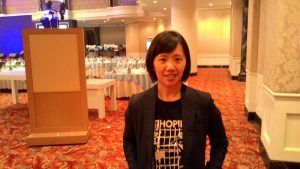
MALAYSIA – Chow Ying Ngeow, member of the Executive Committee of the Anti-Death Penalty Asian Network (ADPAN)
1. Would you tell us how started your militant career?
I was born in Malaysia in 1974. I am now a practicing lawyer. I got involved in anti-death penalty movement about 10 years ago in a campaign to give a young Malaysia was facing imminent execution in Singapore a second chance. Since then, I have been consistently working on the abolition of the death penalty. I was then elected to be in the ADPAN transitional group and then the Executive Committee. I first encountered ECPM while I met up with Raphael in Taiwan for ADPAN first General Assembly.2. Why is it important for you to fight against the death penalty?
Because this issue opens up a whole new perspective for me and reshapes my thinking in many ways. While I am involved in the movement, I am constantly learning. And I think it is important for me to reflect deeply on many issues, including the question of life and death, and justice. Along the way, I have met so many people and gone through so many things, there were many occurrences that leave a mark in my heart, I can’t pinpoint to one. It was the accumulation of many experiences.3. What are the advancements and the difficulties that you find on your way while defending human rights?
My personal biggest achievement is the network of friends and comrades that I have built through this movement. My country is still executing people, so it is not an achievement, but I hope it will end soon. What saddens me the most is that some politicians have used this issue as their political mileage and manipulating the public (at least this is my personal view on what is happening now in Malaysia). I think one of the difficulties for anti-death penalty campaign is how to have a meaningful engagement. I think that one big challenge is the social media. As I see it now (in Malaysia), it is not helping.4. Which evolution of the death penalty situation can you relate in your country?
I see a big change 10 years ago and now. I would argue that there is more progression than regression, even though we have some countries calling to bring back the death penalty after having abolished it. I said it is a progression because I saw the amounts of works and their commitment different stakeholders have put into this movement. And I am positive this movement is going stronger and stronger and we will get to the goal.5. One last word for the abolitionnist community ?
You cannot teach a child that killing is wrong by killing another. No one is an outsider when the State kills in our name.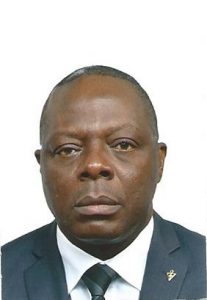
DEMOCRATIC REPUBLIC OF THE CONGO – Liévin Ngondji, President of Culture for Peace and Justice (CPJ)
1. Would you tell us how started your militant career?
I was born in 1962 in Kalima, Democratic Republic of the Congo. I am a lawyer since 1995. The first time I was involved in the fight against the death penalty was when I went on TV to protest against the executions of several death row inmates in 1998. My actions with ECPM started in 2001, when I participated in the 1st World Congress against the Death Penalty in Strasbourg.2. Why is it important for you to fight against the death penalty?
When I was young, my father told me that one of his close relatives had been wrongfully sentenced to death, all his possessions seized and his children abandoned. Although he was pardoned ten years later, his and his family’s lives were completely turned upside down. Afterwards, I assisted innocent people, including child soldiers, which had been sentenced to death in unlawful and unfair trials.3. What are the advancements and the difficulties that you find on your way while defending human rights?
We succeeded in including the discussion on death penalty in the public debate, also involving the government, the parliamentarians and even the Presidency. Furthermore, DRC has been observing a de facto moratorium for 15 years; the government committed to uphold it, most notably by voting for the first time in favour of the UN resolution on a moratorium on the use of the death penalty in November 2018. However, I faced great difficulties along the way, especially the executions of people I accompanied or defended. I also had to face serious physical threats; as well as face the resistance of public opinion and politicians to understand the meaning of my commitment.4. Which evolution of the death penalty situation can you relate in your country?
I have been in the field for 20 years now, and I have seen big developments in favour of abolition, on the national and international levels. As for the future, I think it is quite encouraging in DRC.5. One last word for the abolitionnist community ?
Death penalty is a simple illusion of justice, for it will never end the cycle of violence. On the contrary, it dehumanizes society, especially those in charge of enforcing it.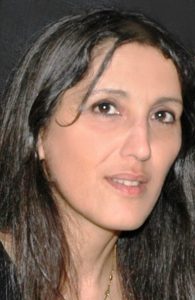
LEBANON – Ogarit Younan, Founder of the University for Non-Violence and Human Rights (AUNOHR)
1. Would you tell us how started your militant career?
I am a sociologist, a writer, an intellectual and the co-founder, with Walid Saybi, of the Academic University for Nonviolence and Human Rights (AUNOHR). The first action against the death penalty that I took part in was at the beginning of the year 1997. I initiated an exhaustive research on the death penalty in Lebanon (the legislation since the foundation of the country, the death row prisoners, the executions, the political authorities, the statistics, the global research works on the causes of crimes and on capital punishment, the traditions and religions, the international human rights instruments, the alternatives, etc.). Led alongside Walid Slaybi, this study was published in December 1997 as a book titled “Death Penalty Kills”, and served as a solid foundation to the Lebanese National Campaign for the Abolition of the Death Penalty. This campaign played a pioneer role in Lebanon and in the region. My first action with ECPM was in 2001 in Strasbourg, as a participant in the 1st World Congress against the Death Penalty.2. Why is it important for you to fight against the death penalty?
Since 1982, at the heart of the civil war in Lebanon, I chose live by the psychanalyst and humanist thinker Erich Fromm: “To Have or To Be”. I decided early to be a non-violent intellectual activist, not especially facing a particular event, but in front of all the violence and injustice that threatened us, then and now. I decided to use my skills and my energy in favour of the fight for rights, freedoms, justice and love. Abolition of the death penalty is part of that; it is at the heart of the philosophy of nonviolence.3. What are the advancements and the difficulties that you find on your way while defending human rights?
In 35 years of involvement in the defence of human rights, I have seen progress on several fronts. I succeeded in instituting the idea of nonviolent education in Lebanon from 1985 on, with, recently, an official integration in curriculums on all schools thanks to an agreement with the Ministry for Education; to introduce a bill on civil marriage in parliament, after a delicate struggle on a taboo issue; to create, with Walid Slaybi, the first university of its kind for academic specialisations on nonviolence and human rights, to serve all Arab societies. Lebanon is quite close to the abolition of the death penalty. In 2001, we managed to repeal the mandatory death penalty. It was a first important achievement and a proof of the efficiency of the abolitionist action in Lebanon. In the same year, a survey amongst MP’s (the first of its kind in Lebanon) found that 74% of them were in favour of abolishing capital punishment. In 2009, another survey had similar results. Furthermore, continuous awareness programmes have played a crucial role in the Lebanese fight. There is an existing legacy, to serve young people, activists, civil society, death row prisoners, victims’ families, jurists, politicians, the media, etc. I lived through a civil war. I have almost been killed several times in my action and my travels in Lebanon in spite of the divisions and multiple threats. Nonetheless, those obstacles are just difficulties, nothing more, that never prevented progress and hope for change. It is how I see and accept them.4. Which evolution of the death penalty situation can you relate in your country?
The last 3 executions in Lebanon happened 15 years ago. Since then, a de facto moratorium on executions has been put in place in the country. However, it abstains since 2007 in the vote on the UN resolution for a universal moratorium. Judicial authorities continue to hand out death sentences. And, after recent shocking crimes, voices have called again for executions… Lebanon is capable of continuing its abolitionist fight, based on the existing knowledge and achievements, and thanks to young and well trained stakeholders ready to take the helm. And, since it is not only about abolishing death penalty, it should go along with legislative reforms on prisons and penalties, on the rights of victims and their families, of prisoners’ rights to rehabilitation and protection of their families; and with a continuous education to abolition.5. One last word for the abolitionnist community ?
Education, awareness and discussion pave the way for a vibrant “No” to the death penalty.





